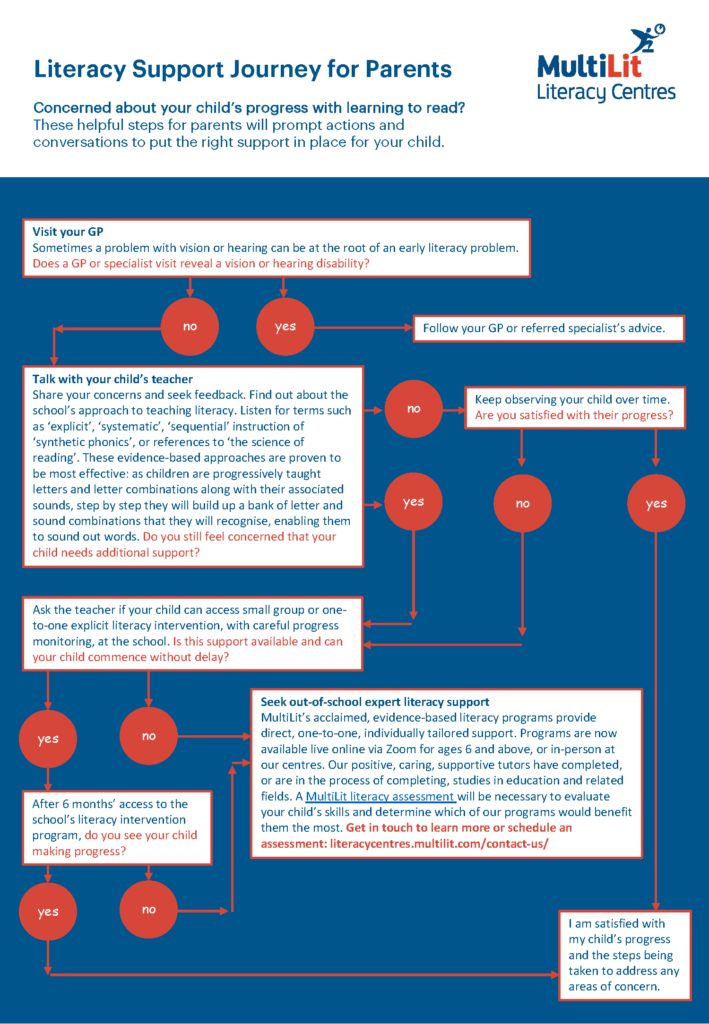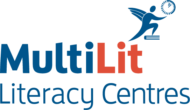The best ways to support your struggling young reader
Concerned about your child’s progress learning to read? Reading difficulties are typically identified around the age of six, though it can be earlier. The sooner you can support your child with intervention, the more effective it will be.
Our guide provides helpful steps for parents, and prompts conversations to support your struggling young reader.

1. Visit your GP
Sometimes a problem with vision or hearing can be at the root of an early literacy problem. Take your child for a check-up with your local GP.
2. Talk with your child’s teacher
It can be helpful to have a conversation with your child’s teacher to share your concerns and gain extra support in-class and at the school.
- Find out about the school’s approach to teaching literacy. If the school uses evidence-based methods in class, you may hear terms such as ‘explicit’, ‘systematic’, ‘sequential’ instruction of ‘synthetic phonics’, or references to ‘the science of reading’. These approaches are proven to be most effective and put simply, mean that children will be progressively taught letters and letter combinations along with their associated sounds. Step by step, they will build up a bank of letter and sound combinations that they will recognise, enabling them to sound out words. Ideally the school will apply this approach in classrooms as well as through remedial programs with any children who need extra help.
- Ask whether the school has an evidence-based intervention or remedial program that your child can access. This may see them get extra focus in a small group or one-to-one, to help them catch up with their class.
- Ask about literacy progress monitoring and how you will be kept informed of your child’s progress to see if further support may be needed.
3. Try a one-minute reading test
If your child is in Year 2 or older, MultiLit has designed a one-minute reading test for parents to administer. This will determine whether a formal reading assessment will be helpful.
4. Consider a formal assessment
Your child may benefit from a formal reading assessment and tailored program through MultiLit Literacy Centres.
MultiLit is Australia’s leading provider of evidence-based literacy programs. Our positive and caring specialist tutors all come from education, language sciences or psychology backgrounds. They are supervised by leading academics in the field of literacy research. This is a highly individualised tutoring program; we leave nothing to chance.
